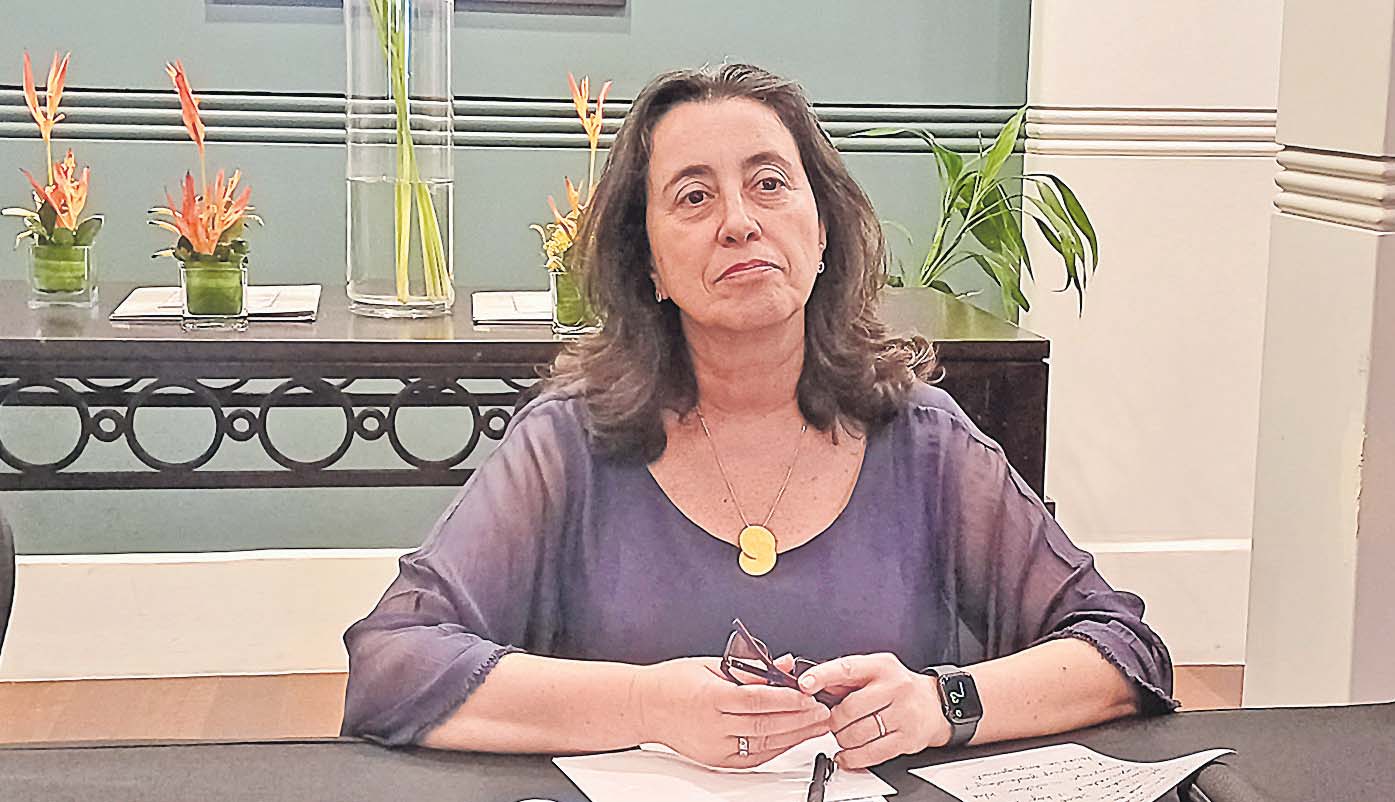World Bank vice president for East Asia and the Pacific Manuela Ferro described as “very productive” her recent meetings with the Fiji Government, adding that increasing economic activities and protecting Fiji from climate change are key pillars in the bank’s work in Fiji.
Ms Ferro was in Fiji last week for the official signing of the “Fiji Tourism Development Program in Vanua Levu”, a $US200 million ($F443.6m) agreement between the Fiji Government and the World Bank to boost tourism in Vanua Levu.
“I’ve had a very productive set of meetings with the government. I would also note that we have been able to sign a new Agreement to finance investments to develop additional resources for tourism and for agriculture and integrated development and that was very much supported by the Ministry of Finance and the Ministry of Tourism.
“I also had the opportunity to visit a couple of our projects in Fiji; in the health services area with the health center, the hospital where we were able to inaugurate and put into motion some new equipment that will help test for several diseases, something that I know the hospital will use well to benefit the Fiji population. I also visited the health center in one of the poorer areas here in Suva, covering a very large catchment area, but really a health center doing tremendous work to benefit a very vulnerable population,” Ms Ferro said.
“These are the kinds of things that we at the World Bank are really keen on supporting in Fiji – things that will translate into an improvement in the lives of the people.
“And we see both these work: to get more economic activity, more investment and more jobs in Fiji, and the work to protect the environment, protect the country from impacts of climate change as our two key pillars. The third one would be the well-being of the Fijian population and I would highlight in particular health, where we see a growing engagement and we also see that that is a priority of the government of Fiji. In the last budget, they (government) already increased allocation for health and this is something we would like to support,” she added.
The “Fiji Tourism Development Program in Vanua Levu” is the first of three projects planned over 10 years to help Fiji deliver its vision for more sustainable, inclusive, and resilient tourism across the country.
This first phase of the program focuses on bolstering tourism in Vanua Levu, including Taveuni island, by improving access to and climate resilience of essential services – such as drainage, sewage, and transport infrastructure.
This includes the Labasa and Savusavu domestic airports, as well as an upgrade to the 95-kilometer road connecting the two towns, according to the World Bank.
“With the second largest economy in the Pacific, Fiji has a well-developed tourism sector and is the leading connection hub for travel in the region. Tourism currently accounts for about 40 per cent of the country’s gross domestic product. However, the sector was severely impacted by COVID-19, with visitor arrivals dropping by 96 per cent in 2021, significantly contributing to a 2.4 per cent increase in poverty across the country,” it said.
“The new program aims to bolster the sector’s resilience to multiple shocks by strengthening tourism service capacity, attracting private investments, creating employment opportunities – particularly for women; and increase government revenue.
“In addition, the management and protection of Fiji’s natural resources will be a central component of the new program, with the program driving the establishment of more than 30 locally-managed marine areas in Vanua Levu and improving the management of strategic areas such as the Waisali Rainforest Reserve.”
The program is in line with the World Bank’s Country Partnership Framework 2020-2024 (CPF) for Fiji, signed in 2021.
Among the key focus areas in the WB-Fiji CPF 2020-2024 are fostering Private Sector-led Growth and Inclusive Economic Opportunities and building resilience.






